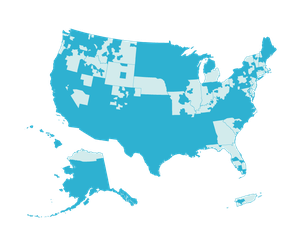A Grassroots Solution to Rural Poverty That Traveled All the Way to the White House
Together with parents and community leaders, MCAEOC began mapping out and implementing a multi-generational strategy to address the needs of both vulnerable children and their parents, with the goal of increasing parents' employment and education and improving the health and well-being of their children and families.
Do you know what Mississippi County, Arkansas and Washington D.C. have in common? Believe it or not, a community leader from this small, rural county Sam Scruggs, is a White House insider. But more on that later.
Sam runs an agency called the Mississippi County Arkansas Economic Opportunity Commission (MCAEOC). Its mission, like that of many other non-profit agencies, is to alleviate poverty. And, like so many other economic opportunity commissions, MCAEOC helps families by offering early childhood programs, adult training and education and housing services.
Keeping programs running well—with their various funding sources, rules, staff and success metrics—is hard enough for any agency. But Sam recognized that while all his programs met their goals, and each had some meaningful success stories, they weren’t doing enough to improve the lives of clients. Adults in the job training program were doing better, but their kids were not, or their gains were only short lived. Students lacked out-of-school learning opportunities and many went home every day to a household where parents were out of work and had no clear path to employment.
These problems exist against a backdrop of profound social and economic challenges in Mississippi County. Last year, Blytheville, the county’s largest city, was ranked among the most dangerous cities in Arkansas. Racial and income inequality add to the already substantial tension in the community, which has a 25.5 percent poverty rate.
But Blytheville has significant assets, too: it is a principle supplier of steel to the rest of the country, and agribusiness is strong. I would also argue that Blytheville’s people, and Sam Scruggs chief among them, are the city’s greatest assets of all.
Sam knows his community, and he is an innovator. He understood that if the lives of parents improved, then their kids would have a brighter future. Likewise, if the children of parents he served were doing better, the adults would benefit as well. So he implemented a “whole family” approach to increasing prosperity in Mississippi County.
Together with parents and community leaders, MCAEOC began mapping out and implementing a multi-generational strategy to address the needs of both vulnerable children and their parents, with the goal of increasing parents' employment and education and improving the health and well-being of their children and families.
And it’s working. So well, in fact, that the White House wanted to hear from Sam about how his organization is empowering people to take the reins of their future, in spite of the odds. And at the Winthrop Rockefeller Foundation, we’re proud to fund this visionary strategy.
On November 16th, I joined community development leaders from across the country at the LISC National Leadership Conference in Houston, Texas, sharing stories to inspire, motivate and energize practitioners in the field—stories of people like Sam, who are activists, advocates and ambassadors of transformation.
